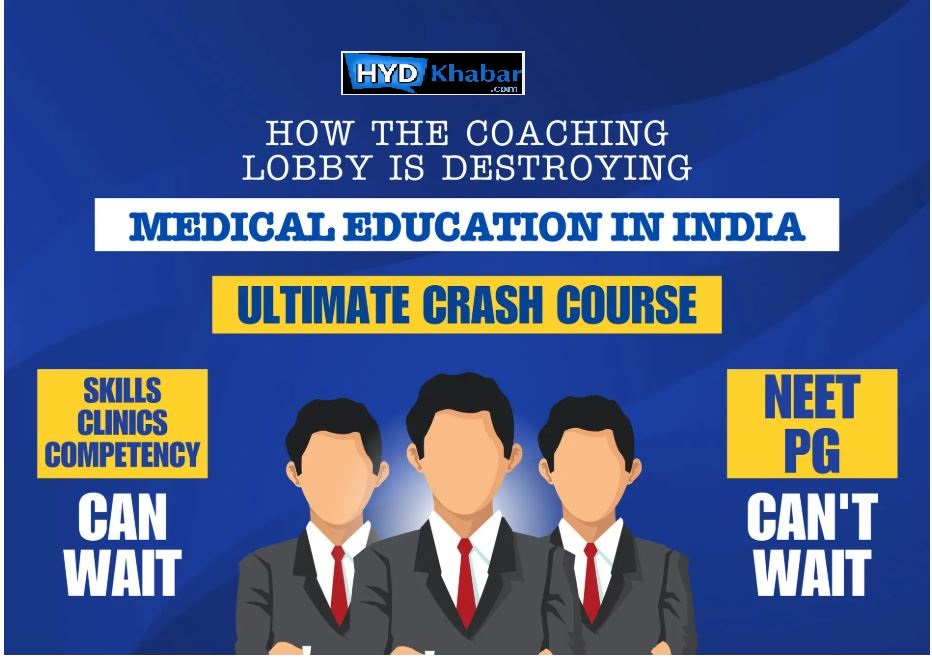The dominance of coaching classes in India is reshaping medical education. Discover how their rise impacts quality, equity, and the holistic development of future doctors.
In recent years, India’s medical education landscape has been significantly influenced by the proliferation of coaching classes designed to prepare students for entrance examinations like NEET-UG. While these institutions aim to enhance students’ chances of securing medical college admissions, their growing dominance has raised concerns about their impact on the quality and equity of medical education in the country.
The Rise of Coaching Institutes
The intense competition for limited medical seats has led many students to enroll in coaching institutes, seeking specialized training to excel in entrance exams. Data from 2017–2019 indicates that over 50% of the top 100 NEET-UG rank holders were trained at such institutions. Notably, at the All-India Institute of Medical Sciences (AIIMS) in New Delhi, most of the 2019 incoming class had attended the same private coaching institute.
Impact on Medical Education Quality
While coaching centers focus on exam-centric learning, there is growing concern that this emphasis may undermine the holistic development of future medical professionals. Critics argue that students trained in these environments may possess extensive factual knowledge but lack fundamental clinical skills and critical thinking abilities essential for patient care. Additionally, the early and intense focus on entrance exam preparation can overshadow the broader educational experiences that medical colleges traditionally provide.
Equity and Accessibility Issues
The high fees associated with coaching institutes create financial barriers, potentially limiting access for students from economically disadvantaged backgrounds. This trend raises concerns about equitable access to medical education, as the ability to afford coaching becomes increasingly linked to success in entrance examinations. Furthermore, the emergence of ‘dummy schools’—institutions that allow students to focus solely on entrance exam preparation—exacerbates these inequities by prioritizing exam performance over comprehensive education.
Psychological and Social Implications
The pressure to succeed in highly competitive entrance exams, intensified by coaching institutes, has been linked to increased stress and mental health issues among students. In extreme cases, this pressure has led to tragic outcomes, including student suicides in coaching hubs like Kota. The relentless focus on exam success can also diminish students’ intrinsic motivation for learning and their passion for the medical profession.
Potential Solutions
Addressing these challenges requires a multifaceted approach:
- Curriculum Reform: Medical colleges should enhance their curricula to emphasize critical thinking, clinical skills, and patient-centered care, reducing students’ reliance on coaching institutes.
- Accessible Resources: Providing affordable and high-quality preparatory resources can help level the playing field for all students, regardless of their economic background.
- Mental Health Support: Implementing robust support systems within educational institutions can help mitigate the psychological pressures associated with medical entrance examinations.
In conclusion, while coaching classes have become a prominent feature of India’s medical education landscape, their influence raises critical questions about the quality, equity, and holistic development of future medical professionals. Balancing the benefits of targeted exam preparation with the need for comprehensive medical education is essential to ensure the cultivation of competent and compassionate healthcare providers.#Hydkhabar

